- Home
- Roald Dahl
The Best of Roald Dahl Page 5
The Best of Roald Dahl Read online
Page 5
'First,' he said, 'we 'ave a little Martini.'
The drinks were on a small table in the far corner, all ready to be mixed, and there was a shaker and ice and plenty of glasses. He began to make the Martini, but meanwhile he'd rung the bell and now there was a knock on the door and a coloured maid came in.
'Ah!' he said, putting down the bottle of gin, taking a wallet from his pocket and pulling out a pound note. 'You will do something for me now, pleess.' He gave the maid the pound.
'You keep dat,' he said. 'And now we are going to play a little game in here and I want you to go off and find for me two - no tree tings. I want some nails; I want a hammer, and I want a chopping knife, a butcher's chopping knife which you can borrow from de kitchen. You can get, yes?'
'A chopping knife!' The maid opened her eyes wide and clasped her hands in front of her. 'You mean a real chopping knife?'
'Yes, yes, of course. Come on now, pleess. You can find dose tings surely for me.'
'Yes, sir, I'll try, sir. Surely I'll try to get them.' And she went.
The little man handed round the Martinis. We stood there and sipped them, the boy with the long freckled face and the pointed nose, bare-bodied except for a pair of faded brown bathing shorts; the English girl, a large-boned, fair-haired girl wearing a pale blue bathing suit, who watched the boy over the top of her glass all the time; the little man with the colourless eyes standing there in his immaculate white suit drinking his Martini and looking at the girl in her pale blue bathing dress. I didn't know what to make of it all. The man seemed serious about the bet and he seemed serious about the business of cutting off the finger. But hell, what if the boy lost? Then we'd have to rush him to the hospital in the Cadillac that he hadn't won. That would be a fine thing. Now wouldn't that be a really fine thing? It would be a damn silly unnecessary thing so far as I could see.
'Don't you think this is rather a silly bet?' I said.
'I think it's a fine bet,' the boy answered. He had already downed one large Martini.
'I think it's a stupid, ridiculous bet,' the girl said. 'What'll happen if you lose?'
'It won't matter. Come to think of it, I can't remember ever in my life having had any use for the little finger on my left hand. Here he is.' The boy took hold of the finger. 'Here he is and he hasn't ever done a thing for me yet. So why shouldn't I bet him. I think it's a fine bet.'
The little man smiled and picked up the shaker and refilled our glasses.
'Before we begin,' he said, 'I will present to de - to de referee de key of de car.' He produced a car key from his pocket and gave it to me. 'De papers,' he said, 'de owning papers and insurance are in de pocket of de car.'
Then the coloured maid came in again. In one hand she carried a small chopper, the kind used by butchers for chopping meat bones, and in the other a hammer and a bag of nails.
'Good! You get dem all. Tank you, tank you. Now you can go.' He waited until the maid had closed the door, then he put the implements on one of the beds and said, 'Now we prepare ourselves, yes?' And to the boy, 'Help me, pleess, with dis table. We carry it out a little.'
It was the usual kind of hotel writing desk, just a plain rectangular table about four feet by three with a blotting pad, inks, pens and paper. They carried it out into the room away from the wall, and removed the writing things.
'And now,' he said, 'a chair.' He picked up a chair and placed it beside the table. He was very brisk and very animated, like a person organizing games at a children's party. 'And now de nails. I must put in de nails.' He fetched the nails and began to hammer them into the top of the table.
We stood there, the boy, the girl, and I, holding Martinis in our hands, watching the little man at work. We watched him hammer two nails into the table, about six inches apart. He didn't hammer them right home; he allowed a small part of each one to stick up. Then he tested them for firmness with his fingers.
Anyone would think the son of a bitch had done this before, I told myself. He never hesitates. Table, nails, hammer, kitchen chopper. He knows exactly what he needs and how to arrange it.
'And now,' he said, 'all we want is some string.' He found some string. 'All right, at last we are ready. Will you pleess to sit here at de table,' he said to the boy.
The boy put his glass away and sat down.
'Now place de left hand between dese two nails. De nails are only so I can tie your hand in place. All right, good. Now I tie your hand secure to de table - so.'
He wound the string around the boy's wrist, then several times around the wide part of the hand, then he fastened it tight to the nails. He made a good job of it and when he'd finished there wasn't any question about the boy being able to draw his hand away. But he could move his fingers.
'Now pleess, clench de fist, all except for de little finger. You must leave de little finger out, lying on de table.
'Ex-cellent! Ex-cellent! Now we are ready. Wid your right hand you manipulate de lighter. But one momint, pleess.'
He skipped over to the bed and picked up the chopper. He came back and stood beside the table with the chopper in his hand.
'We are all ready?' he said. 'Mister referee, you must say to begin.'
The English girl was standing there in her pale blue bathing costume right behind the boy's chair. She was just standing there, not saying anything. The boy was sitting quite still, holding the lighter in his right hand, looking at the chopper. The little man was looking at me.
'Are you ready?' I asked the boy.
'I'm ready.'
'And you?' to the little man.
'Quite ready,' he said and he lifted the chopper up in the air and held it there about two feet above the boy's finger, ready to chop. The boy watched it, but he didn't flinch and his mouth didn't move at all. He merely raised his eyebrows and frowned.
'All right,' I said. 'Go ahead.'
The boy said, 'Will you please count aloud the number of times I light it.'
'Yes,' I said. 'I'll do that.'
With his thumb he raised the top of the lighter, and again with the thumb he gave the wheel a sharp flick. The flint sparked and the wick caught fire and burned with a small yellow flame.
'One!' I called.
He didn't blow the flame out; he closed the top of the lighter on it and he waited for perhaps five seconds before opening it again.
He flicked the wheel very strongly and once more there was a small flame burning on the wick.
'Two!'
No one else said anything. The boy kept his eyes on the lighter. The little man held the chopper up in the air and he too was watching the lighter.
'Three!'
'Four!'
'Five!'
'Six!'
'Seven!' Obviously it was one of those lighters that worked. The flint gave a big spark and the wick was the right length. I watched the thumb snapping the top down on to the flame. Then a pause. Then the thumb raising the top once more. This was an all-thumb operation. The thumb did everything. I took a breath, ready to say eight. The thumb flicked the wheel. The flint sparked. The little flame appeared.
'Eight!' I said, and as I said it the door opened. We all turned and we saw a woman standing in the doorway, a small, black-haired woman, rather old, who stood there for about two seconds then rushed foward shouting, 'Carlos! Carlos!' She grabbed his wrist, took the chopper from him, threw it on the bed, took hold of the little man by the lapels of his white suit and began shaking him very vigorously, talking to him fast and loud and fiercely all the time in some Spanish-sounding language. She shook him so fast you couldn't see him any more. He became a faint, misty, quickly moving outline, like the spokes of a turning wheel.
Then she slowed down and the little man came into view again and she hauled him across the room and pushed him backwards on to one of the beds. He sat on the edge of it blinking his eyes and testing his head to see if it would still turn on his neck.
'I am so sorry,' the woman said. 'I am so terribly sorry that this should happen
.' She spoke almost perfect English.
'It is too bad,' she went on. 'I suppose it is really my fault. For ten minutes I leave him alone to go and have my hair washed and I come back and he is at it again.' She looked sorry and deeply concerned.
The boy was untying his hand from the table. The English girl and I stood there and said nothing.
'He is a menace,' the woman said. 'Down where we live at home he has taken altogether forty-seven fingers from different people, and he has lost eleven cars. In the end they threatened to have him put away somewhere. That's why I brought him up here.'
'We were only having a little bet,' mumbled the little man from the bed.
'I suppose he bet you a car,' the woman said.
'Yes,' the boy answered. 'A Cadillac.'
'He has no car. It's mine. And that makes it worse,' she said, 'that he should bet you when he has nothing to bet with. I am ashamed and very sorry about it all.' She seemed an awfully nice woman.
'Well,' I said, 'then here's the key of your car.' I put it on the table.
'We were only having a little bet,' mumbled the little man.
'He hasn't anything left to bet with,' the woman said. 'He hasn't a thing in the world. Not a thing. As a matter of fact I myself won it all from him a long while ago. It took time, a lot of time, and it was hard work, but I won it all in the end.' She looked up at the boy and she smiled, a slow sad smile, and she came over and put out a hand to take the key from the table.
I can see it now, that hand of hers; it had only one finger on it, and a thumb.
The Sound Machine
[1949]
It was a warm summer evening and Klausner walked quickly through the front gate and around the side of the house and into the garden at the back. He went on down the garden until he came to a wooden shed and he unlocked the door, went inside and closed the door behind him.
The interior of the shed was an unpainted room. Against one wall, on the left, there was a long wooden workbench, and on it, among a littering of wires and batteries and small sharp tools, there stood a black box about three feet long, the shape of a child's coffin.
Klausner moved across the room to the box. The top of the box was open, and he bent down and began to poke and peer inside it among a mass of different-coloured wires and silver tubes. He picked up a piece of paper that lay beside the box, studied it carefully, put it down, peered inside the box and started running his fingers along the wires, tugging gently at them to test the connections, glancing back at the paper, then into the box, then at the paper again, checking each wire. He did this for perhaps an hour.
Then he put a hand around to the front of the box where there were three dials, and he began to twiddle them, watching at the same time the movement of the mechanism inside the box. All the while he kept speaking softly to himself, nodding his head, smiling sometimes, his hands always moving, the fingers moving swiftly, deftly, inside the box, his mouth twisting into curious shapes when a thing was delicate or difficult to do, saying, 'Yes ... Yes ... And now this one ... Yes ... Yes ... But is this right? Is it - where's my diagram? ... Ah, yes ... Of course ... Yes, yes ... That's right ... And now ... Good ... Good ... Yes ... Yes, yes, yes.' His concentration was intense; his movements were quick; there was an air of urgency about the way he worked, of breathlessness, of strong suppressed excitement.
Suddenly he heard footsteps on the gravel path outside and he straightened and turned swiftly as the door opened and a tall man came in. It was Scott. It was only Scott, the doctor.
'Well, well, well,' the Doctor said. 'So this is where you hide yourself in the evenings.'
'Hullo, Scott,' Klausner said.
'I happened to be passing,' the Doctor told him, 'so I dropped in to see how you were. There was no one in the house, so I came on down here. How's that throat of yours been behaving?'
'It's all right. It's fine.'
'Now I'm here I might as well have a look at it.'
'Please don't trouble. I'm quite cured. I'm fine.'
The Doctor began to feel the tension in the room. He looked at the black box on the bench; then he looked at the man. 'You've got your hat on,' he said.
'Oh, have I?' Klausner reached up, removed the hat and put it on the bench.
The Doctor came up closer and bent down to look into the box. 'What's this?' he said. 'Making a radio?'
'No. Just fooling around.'
'It's got rather complicated-looking innards.'
'Yes.' Klausner seemed tense and distracted.
'What is it?' the Doctor asked. 'It's rather a frightening-looking thing, isn't it?'
'It's just an idea.'
'Yes?'
'It has to do with sound, that's all.'
'Good heavens, man! Don't you get enough of that sort of thing all day in your work?'
'I like sound.'
'So it seems.' The Doctor went to the door, turned, and said, 'Well, I won't disturb you. Glad your throat's not worrying you any more.' But he kept standing there, looking at the box, intrigued by the remarkable complexity of its inside, curious to know what this strange patient of his was up to. 'What's it really for?' he asked. 'You've made me inquisitive.'
Klausner looked down at the box, then at the Doctor, and he reached up and began gently to scratch the lobe of his right ear. There was a pause. The Doctor stood by the door, waiting, smiling.
'All right, I'll tell you, if you're interested.' There was another pause, and the Doctor could see that Klausner was having trouble about how to begin.
He was shifting from one foot to the other, tugging at the lobe of his ear, looking at his feet, and then at last, slowly, he said, 'Well, it's like this ... the theory is very simple, really. The human ear ... You know that it can't hear everything. There are sounds that are so low-pitched or so high-pitched that it can't hear them.'
'Yes,' the Doctor said. 'Yes.'
'Well, speaking very roughly, any note so high that it has more than fifteen thousand vibrations a second - we can't hear it. Dogs have better ears than us. You know you can buy a whistle whose note is so high-pitched that you can't hear it at all. But a dog can hear it.'
'Yes, I've seen one,' the Doctor said.
'Of course you have. And up the scale, higher than the note of that whistle, there is another note - a vibration if you like, but I prefer to think of it as a note. You can't hear that one either. And above that there is another and another rising right up the scale for ever and ever and ever, an endless succession of notes ... an infinity of notes ... there is a note - if only our ears could hear it - so high that it vibrates a million times a second ... and another a million times as high as that ... and on and on, higher and higher, as far as numbers go, which is ... infinity ... eternity ... beyond the stars.'
Klausner was becoming more animated every moment. He was a small frail man, nervous and twitchy, with always moving hands. His large head inclined towards his left shoulder as though his neck were not quite strong enough to support it rigidly. His face was smooth and pale, almost white, and the pale grey eyes that blinked and peered from behind a pair of steel spectacles were bewildered, unfocused, remote. He was a frail, nervous, twitchy little man, a moth of a man, dreamy and distracted; suddenly fluttering and animated; and now the Doctor, looking at that strange pale face and those pale grey eyes, felt that somehow there was about this little person a quality of distance, of immense, immeasurable distance, as though the mind were far away from where the body was.
The Doctor waited for him to go on. Klausner sighed and clasped his hands tightly together. 'I believe,' he said, speaking more slowly now, 'that there is a whole world of sound about us all the time that we cannot hear. It is possible that up there in those high-pitched inaudible regions there is a new exciting music being made, with subtle harmonies and fierce grinding discords, a music so powerful that it would drive us mad if only our ears were tuned to hear the sound of it. There may be anything ... for all we know there may -'
'Yes,' the Do
ctor said. 'But it's not very probable.'
'Why not? Why not?' Klausner pointed to a fly sitting on a small roll of copper wire on the workbench. 'You see that fly? What sort of a noise is that fly making now? None - that one can hear. But for all we know the creature may be whistling like mad on a very high note, or barking or croaking or singing a song. It's got a mouth, hasn't it? It's got a throat!'
The Doctor looked at the fly and he smiled. He was still standing by the door with his hand on the doorknob. 'Well,' he said. 'So you're going to check up on that?'
'Some time ago,' Klausner said, 'I made a simple instrument that proved to me the existence of many odd inaudible sounds. Often I have sat and watched the needle of my instrument recording the presence of sound vibrations in the air when I myself could hear nothing. And those are the sounds I want to listen to. I want to know where they come from and who or what is making them.'
'And that machine on the table there,' the Doctor said, 'is that going to allow you to hear these noises?'
'It may. Who knows? So far, I've had no luck. But I've made some changes in it and tonight I'm ready for another trial. This machine,' he said, touching it with his hands, 'is designed to pick up sound vibrations that are too high-pitched for reception by the human ear, and to convert them to a scale of audible tones. I tune it in, almost like a radio.'
'How d'you mean?'
'It isn't complicated. Say I wish to listen to the squeak of a bat. That's a fairly high-pitched sound - about thirty thousand vibrations a second. The average human ear can't quite hear it. Now, if there were a bat flying around this room and I tuned in to thirty thousand on my machine, I would hear the squeaking of that bat very clearly. I would even hear the correct note - F sharp, or B flat, or whatever it might be - but merely at a much lower pitch. Don't you understand?'
The Doctor looked at the long black coffin-box. 'And you're going to try it tonight?'
'Yes.'
'Well, I wish you luck.' He glanced at his watch. 'My goodness!' he said. 'I must fly. Good-bye, and thank you for telling me. I must call again sometime and find out what happened.' The Doctor went out and closed the door behind him.

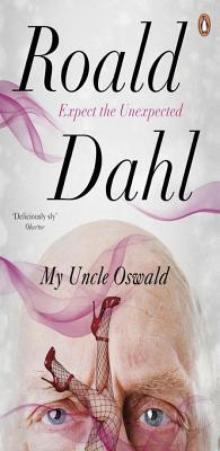 My Uncle Oswald
My Uncle Oswald The Best of Roald Dahl
The Best of Roald Dahl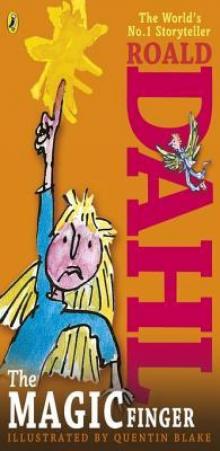 The Magic Finger
The Magic Finger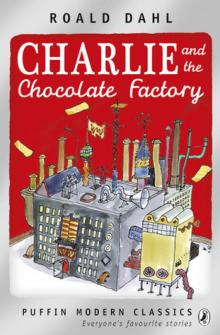 Charlie and the Chocolate Factory
Charlie and the Chocolate Factory Fantastic Mr Fox
Fantastic Mr Fox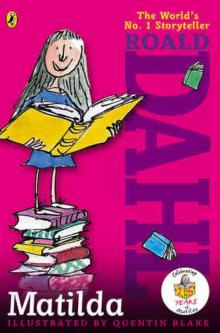 Matilda
Matilda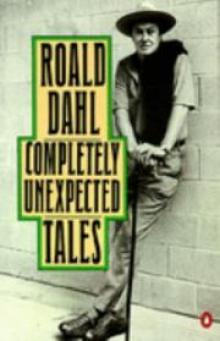 Completely Unexpected Tales: Tales of the Unexpected. More Tales of the Unexpected
Completely Unexpected Tales: Tales of the Unexpected. More Tales of the Unexpected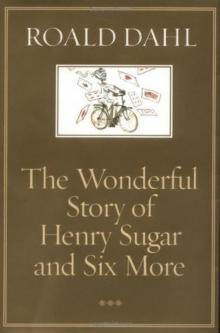 The Wonderful Story of Henry Sugar and Six More
The Wonderful Story of Henry Sugar and Six More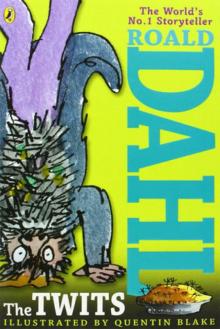 The Twits
The Twits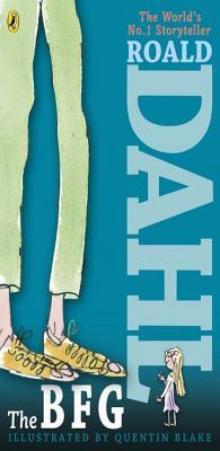 The BFG
The BFG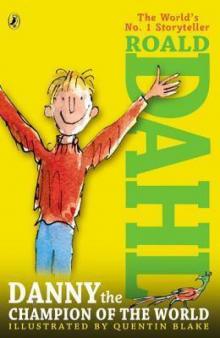 Danny the Champion of the World
Danny the Champion of the World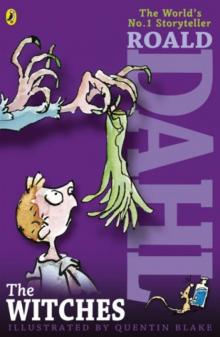 The Witches
The Witches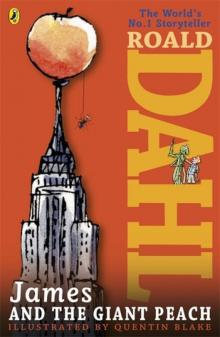 James and the Giant Peach
James and the Giant Peach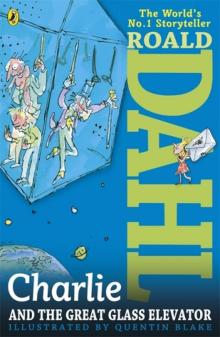 Charlie and the Great Glass Elevator
Charlie and the Great Glass Elevator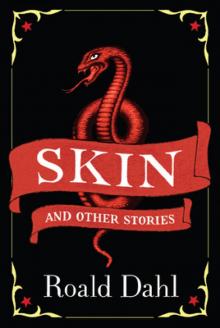 Skin and Other Stories
Skin and Other Stories Kiss Kiss
Kiss Kiss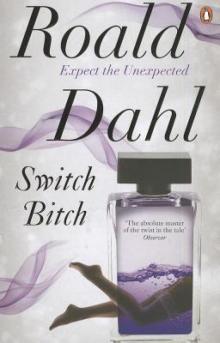 Switch Bitch
Switch Bitch The Giraffe and the Pelly and Me
The Giraffe and the Pelly and Me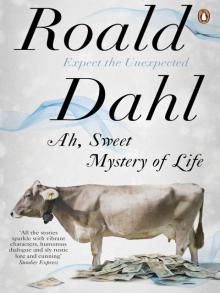 Ah, Sweet Mystery of Life
Ah, Sweet Mystery of Life Fear
Fear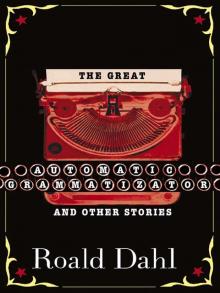 The Great Automatic Grammatizator and Other Stories
The Great Automatic Grammatizator and Other Stories Someone Like You
Someone Like You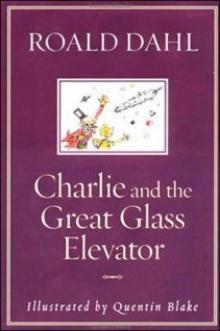 Charlie and the Great Glass Elevator c-2
Charlie and the Great Glass Elevator c-2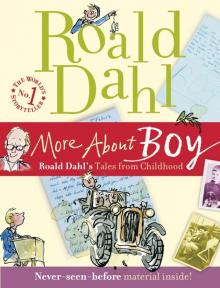 More About Boy
More About Boy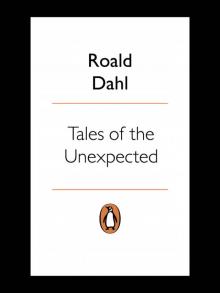 Tales of the Unexpected
Tales of the Unexpected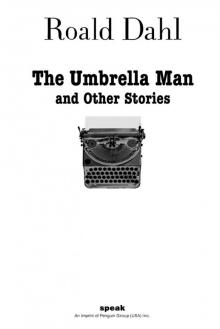 The Umbrella Man and Other Stories
The Umbrella Man and Other Stories Dirty Beasts
Dirty Beasts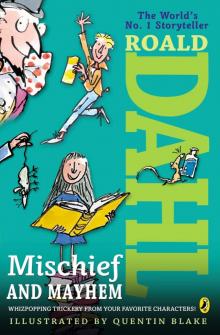 Roald Dahl's Mischief and Mayhem
Roald Dahl's Mischief and Mayhem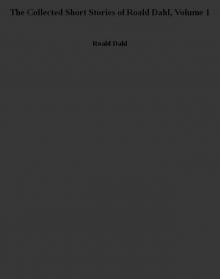 The Collected Short Stories of Roald Dahl, Volume 1
The Collected Short Stories of Roald Dahl, Volume 1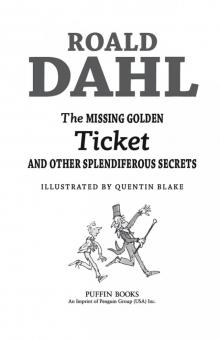 The Missing Golden Ticket and Other Splendiferous Secrets
The Missing Golden Ticket and Other Splendiferous Secrets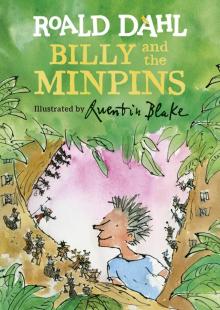 Billy and the Minpins
Billy and the Minpins Over to You
Over to You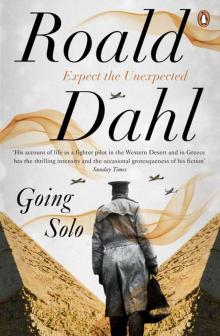 Going Solo
Going Solo Deception
Deception War
War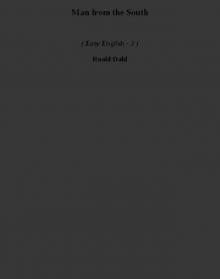 Man from the South ee-3
Man from the South ee-3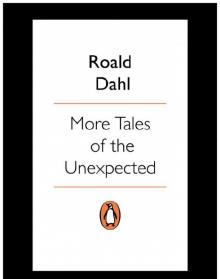 More Tales of the Unexpected
More Tales of the Unexpected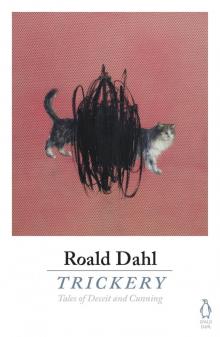 Trickery
Trickery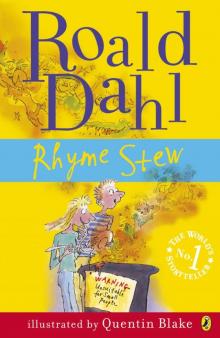 Rhyme Stew
Rhyme Stew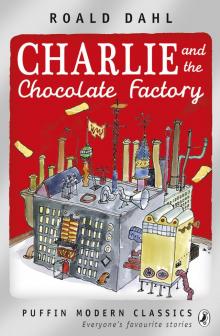 Charlie and the Chocolate Factory (Puffin Modern Classics relaunch)
Charlie and the Chocolate Factory (Puffin Modern Classics relaunch)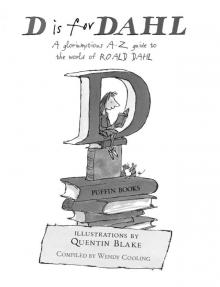 D is for Dahl
D is for Dahl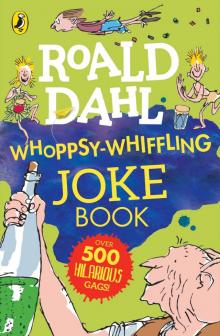 Roald Dahl Whoppsy-Whiffling Joke Book
Roald Dahl Whoppsy-Whiffling Joke Book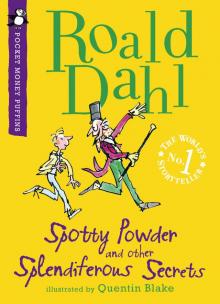 Spotty Powder and other Splendiferous Secrets
Spotty Powder and other Splendiferous Secrets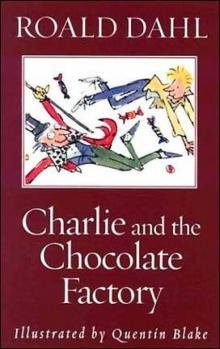 Charlie and the Chocolate Factory c-1
Charlie and the Chocolate Factory c-1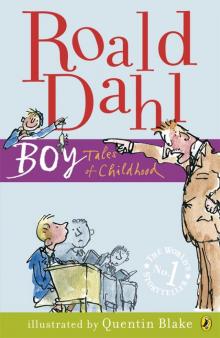 Boy
Boy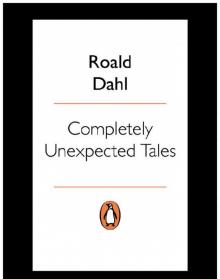 Completely Unexpected Tales
Completely Unexpected Tales Madness
Madness Innocence
Innocence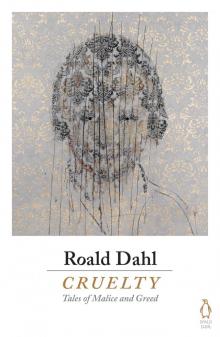 Cruelty
Cruelty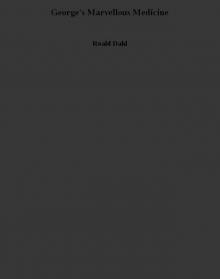 George's Marvellous Medicine
George's Marvellous Medicine